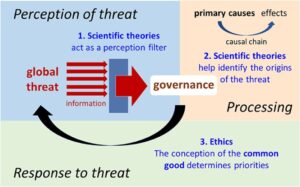
AI in card games is reshaping the landscape of gaming, merging traditional strategies with cutting-edge technology to create more engaging experiences. From classic favorites to innovative new titles, AI has permeated various aspects of card games, enhancing gameplay and providing unique interactions for players.
This transformative journey not only highlights the growing significance of AI but also reflects its evolution alongside the gaming world. With algorithms capable of analyzing player behavior and adapting strategies, AI is not just a tool but a pivotal component that enhances both competitive and casual play.
Introduction to AI in Card Games
The integration of artificial intelligence (AI) has revolutionized traditional card games, enhancing gameplay and user experience in unprecedented ways. As technology advances, the evolution of card games has seen a significant transformation, moving from simple mechanics to sophisticated systems powered by AI. Notably, games like Hearthstone and Magic: The Gathering Arena have embraced AI, providing players with dynamic and adaptive opponents and enriching the overall gaming experience.
Evolution of Card Games with AI Integration
The journey of card games into the realm of AI has been remarkable. Here are a few key milestones:
- Early adaptations included basic AI that mimicked human strategies.
- Modern implementations utilize complex algorithms to analyze player behavior and predict moves.
- AI now not only plays against users but also assists in game design and balancing.
Popular Card Games Utilizing AI
Many card games have successfully integrated AI to enhance their offerings. Some noteworthy examples include:
- Hearthstone: Uses AI to create challenging opponents that adapt based on player strategies.
- Magic: The Gathering Arena: Implements machine learning to analyze the meta and enhance player matchmaking.
- Gwent: Features AI that learns player patterns to provide a more engaging experience.
AI Algorithms Used in Card Games
Various algorithms are instrumental in driving AI functionalities in card games.
Algorithms Implemented in AI for Card Games
AI in card games employs several algorithms, including:
- Minimax Algorithm: This decision-making algorithm is essential for turn-based games, enabling AI to evaluate potential moves.
- Monte Carlo Tree Search (MCTS): MCTS is used for exploring possible future game states and making informed decisions based on random sampling.
- Neural Networks: These are utilized to predict outcomes and optimize strategies based on vast datasets of previous games.
Machine Learning in Enhancing AI Performance
Machine learning plays a vital role in refining AI’s capabilities. By analyzing player data, AI can:
- Adapt to individual player strategies over time, increasing the challenge.
- Utilize reinforcement learning to improve its gameplay through trial and error.
- Predict player behavior and adjust strategies dynamically.
Successful AI Algorithms in Specific Card Games
Several case studies illustrate the successful implementation of AI algorithms:
- In Hearthstone, AI opponents use a mix of predefined strategies and learned behaviors to create a varied gaming experience.
- Magic: The Gathering Arena employs machine learning to analyze win rates and balance card strengths, ensuring fair gameplay.
- Gwent’s AI adjusts its tactics based on previous matches, providing a personalized challenge for players.
Benefits of AI in Card Game Design
The incorporation of AI in the design and development of card games brings substantial advantages.
Advantages of Using AI in Game Design
AI significantly enhances various aspects of card game design:
- Improved Game Balancing: AI helps developers analyze gameplay data to fine-tune card strengths and weaknesses.
- Diverse Gameplay Experiences: AI can create varied game scenarios, ensuring that players encounter different challenges each time they play.
- Streamlined Development: AI tools assist designers in testing and iterating on game mechanics more efficiently.
Features Enhanced by AI in Card Game Mechanics
AI enhances several key features in card games:
- Dynamic Difficulty Adjustment: AI can modify the difficulty level in real-time based on player performance.
- Card Recommendation Systems: AI analyzes player preferences to suggest cards that align with their playstyle.
- Automated Playtesting: AI can simulate thousands of games to identify potential issues before launch.
AI Improving User Experience and Engagement
The user experience in card games has greatly benefited from AI:
- Personalized Gameplay: AI tailors challenges to each player’s skill level, increasing engagement.
- Enhanced Social Interaction: AI-driven features encourage community engagement, such as AI-generated tournaments.
- Real-time Feedback: Players receive immediate insights and suggestions based on their gameplay, fostering improvement.
AI as Opponents in Card Games
AI has emerged as a formidable opponent in card games, providing players with unique challenges.
AI Serving as a Challenging Opponent
AI’s role as an opponent in card games is significant:
- Consistent Challenge: AI can provide a steady level of challenge that scales with player skill.
- Adaptive Strategies: AI uses algorithms to adjust its strategies based on player actions, keeping gameplay fresh.
- Variety: Players can face different AI opponents, each with unique playstyles and strategies.
Strategies AI Uses to Adapt to Player Behavior
To enhance gameplay, AI employs various strategies to adapt:
- Pattern Recognition: AI analyzes previous games to predict future moves.
- Risk Assessment: AI evaluates the risk versus reward of its actions based on the current game state.
- Learning from Defeats: AI improves by analyzing matches it loses, adapting strategies to counter player tactics.
Experience of Playing Against AI vs. Human Opponents
Playing against AI offers a different experience compared to human opponents:
- Predictability: AI can be predictable in its strategies but compensates with adaptation.
- Availability: Players can engage with AI opponents at any time, offering convenience.
- Skill Development: Playing against AI can help new players learn game mechanics without the pressure of competing against experienced players.
Future Trends of AI in Card Games
Looking ahead, AI is set to play an even more prominent role in card games.
Predictions for the Future Role of AI
The future of AI in card games is promising:
- Increased Personalization: AI will continue to refine its understanding of player preferences for tailored experiences.
- Advanced Game Mechanics: Expect to see innovative game mechanics made possible through AI capabilities.
- Greater Community Interaction: AI will enhance social features, fostering a more interactive player community.
Challenges and Ethical Considerations
As AI becomes more integrated, several challenges and ethical considerations arise:
- Fairness: Ensuring AI does not create an unbalanced playing field is crucial.
- Data Privacy: Player data used to train AI must be handled responsibly.
- Dependence on AI: Over-reliance on AI for gameplay could diminish traditional skill development.
Emerging Technologies and Their Expected Impact
The following table Artikels emerging technologies and their anticipated impact on card games:
| Technology | Expected Impact |
|---|---|
| Enhanced Machine Learning | Improved AI adaptability and personalization. |
| Blockchain | Secure ownership and trading of digital cards. |
| Augmented Reality | Immersive gameplay experiences that blend physical and digital elements. |
Case Studies of AI-Enhanced Card Games
Several card games stand out for their successful AI integration.
In-depth Analysis of AI-Enhanced Card Games

Examining specific games reveals the effectiveness of AI:
- Hearthstone: AI-enhanced matchmaking ensures players are paired with opponents of similar skill levels.
- Magic: The Gathering Arena: AI assists in balancing card interactions and meta shifts by analyzing player data.
- Gwent: AI challenges players by learning their strategies and adapting its playstyle accordingly.
Player Feedback on AI Features
Feedback from players highlights their experiences with AI features:
- Players appreciate the challenge provided by AI opponents, noting that it keeps gameplay fresh.
- Many find that AI-assisted features enhance strategic depth, making games more engaging.
- Some players express a desire for more variability in AI behavior to mimic human unpredictability.
Notable AI-Enhanced Card Games and Their Characteristics
The following list includes notable AI-enhanced card games and their unique features:
- Hearthstone: Dynamic AI opponents and a complex matchmaking system.
- Magic: The Gathering Arena: Real-time balancing using AI analytics.
- Gwent: AI learns from player strategies for a personalized experience.
Community and AI in Card Games
AI’s influence on player community dynamics is becoming increasingly significant.
Impact of AI on Player Community Dynamics
AI shapes community dynamics in various ways:
- Encouraging Collaboration: AI-driven tools promote collaboration among players, fostering community events.
- Creating Competitive Environments: AI enhances competitive gameplay, drawing players to engage in tournaments.
- Facilitating Communication: AI-powered chatbots assist in community management and player support.
Player Perception of AI in Casual vs. Competitive Environments
Player perceptions of AI vary between casual and competitive settings:
- In casual play, AI is often viewed as a helpful tool for learning.
- In competitive settings, players may feel AI presents an unfair advantage, necessitating regulation.
- Overall, player acceptance of AI depends on its perceived fairness and ability to enhance the gaming experience.
Role of AI-Driven Tools in Community Interactions

AI-driven tools are vital in enhancing community interactions:
- Matchmaking services help players find suitable opponents based on skill levels.
- AI analytics provide insights into community trends, informing game development.
- Automated moderation tools help maintain a positive community environment.
End of Discussion
As we’ve explored, the integration of AI in card games has opened up a world of possibilities, making them more interactive, challenging, and enjoyable for all players. The future promises even more innovation, raising intriguing questions about the role of AI in our gaming experiences and the ethical considerations that come with it.
Essential FAQs
How does AI improve gameplay in card games?
AI enhances gameplay by analyzing player strategies and adapting its tactics, providing a more challenging and engaging experience.
Can AI replace human players in card games?
While AI can serve as a formidable opponent, it is unlikely to completely replace human players due to the social and strategic nuances of human interaction.
What are some popular card games that use AI?
Popular card games utilizing AI include Hearthstone, Magic: The Gathering Arena, and Gwent, each implementing unique AI features to enhance player experience.
Are there ethical concerns regarding AI in card games?
Yes, ethical concerns include fairness in gameplay, reliance on AI for decision-making, and the potential for AI to manipulate player behavior.
How can AI benefit the design of new card games?
AI can streamline the design process by providing insights into player preferences, testing game mechanics, and creating adaptive gameplay experiences.





![[Card] Balancing Forces : r/collectivecg](https://biovac.info/wp-content/uploads/2025/07/p8aoiyni6ex21-300x300.jpg)